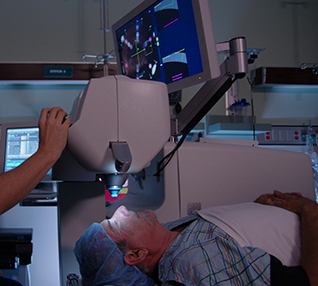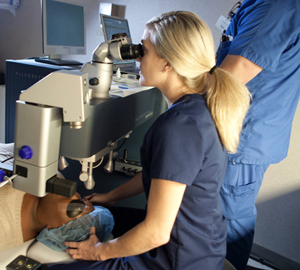LenSx Laser Cataract Surgery in Savannah, GA
Georgia Eye Institute is proud to offer refractive cataract surgery using the LenSx laser for our Laser Cataract surgery patients. It is the most advanced method of cataract surgery. Patients now have the option of choosing a computer-controlled, bladeless cataract laser to take care of some of the critical steps in the cataract surgery procedure. Compared to the traditional method where a miniature scalpel is used to create incisions, this new method allows the surgeon to create incisions with femtosecond laser pulses. The LenSx laser also breaks apart the cloudy cataract lens and creates a perfect size capsulotomy. The LenSx uses integrated optical coherence tomography (OCT) which captures precise, high resolution images of the patient’s eyes. This allows the surgery to be 100% customized. Laser assisted cataract surgery is precise, predictable, reproducible and safe. Ask your doctor if you are a candidate for this revolutionary procedure.


